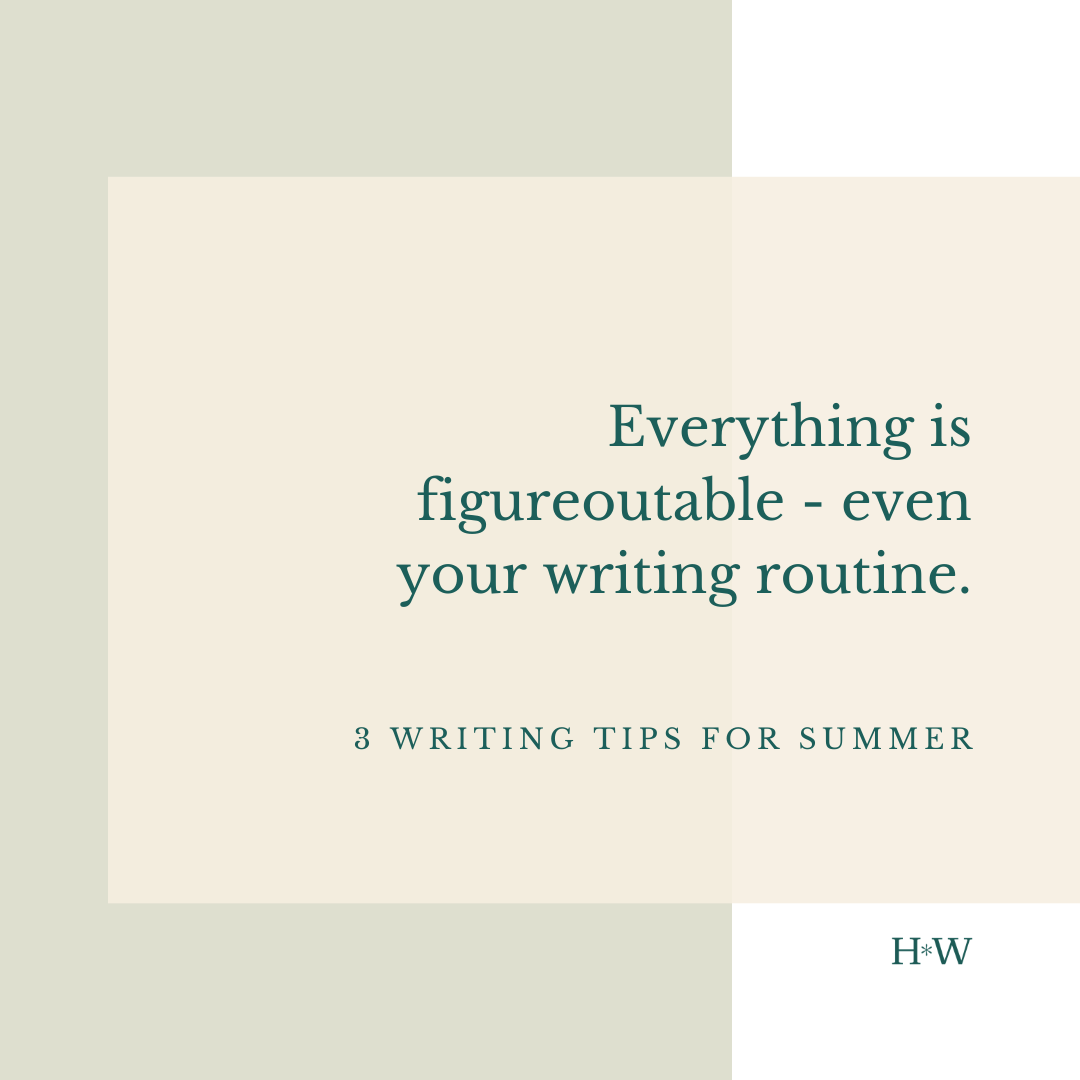3 Writing Tips for Summer Schedules
May 31, 2021
Many of us romanticize summer as a time for carefree relaxation, novels read poolside, and backyard barbecues. All these things may happen, but the reality is, most of us continue to work regular hours throughout the summer, fitting fun into the margins on our calendars.
In summer, our everyday work life can feel the squeeze as responsibilities expand. Children may be home from school, schedules quickly fill up with get-togethers, and perhaps we’ve planned a week or two of vacation.
For writers, frustration can build up when our regular rhythm of work is no longer possible. If you have a primary job, writing time is often the first thing to go. If you write for a living, summer can cause serious stress to your regular writing schedule.
At hope*writers, we believe everything is figureoutable — even your summer writing routine. The following three tips will help you create a flexible plan to make progress on your writing this summer.

1. Get clear on the task.
Nothing brings on frustration more quickly than trying to work on two things at once. Depending on your situation, you may not get many work sessions during the summer, so it’s important to be clear on the front end what you want to accomplish when you have a work session.
If you can’t state what the task is when you sit down to work, you’ll be more prone to distraction, and instead of writing your monthly newsletter, you’ll end up researching your vacation destination.
Once you get started, carry your plan through as though it’s one single task. When you’re not clear or you try to multitask with your writing, you’ll make little progress on lots of things instead of real progress on one.
2. Ready your workspace.
Whether you have an actual home office with a door or your workspace is your kitchen table, ready it by clearing it and preparing it for writing.
If there’s a bunch of stuff on your desk, put it on the floor. You can always put it back on your desk when your work session is over. If you’re locked in your bedroom on your bed, make the bed first. Clear the clutter that you can see. Face the window. Anything to get rid of that visual clutter.
Next, create a writing ritual for that space. Before you sit down to write, light a candle, open the window, or put on a writing playlist. Your ritual can be anything small that feels a little special to set the tone for your work session.

3. Apply a time limit.
This is just another way to say set a timer. Experts say that our brains can concentrate on one task for about 20 minutes before losing focus. There aren’t any rules for how long a work session can go, but there’s something about that 20-25 minute space that allows us to sit down, concentrate, and then take a quick break. String together a few 20-minute sessions with short breaks and you will make progress.
The most important thing is that you schedule a specific time on your calendar to write, set a timer during that writing session, and stick with it.
Writing is hard enough. Summer doesn’t have to make it harder. With a defined task, a ready workspace, and a specific time limit, you can produce great content even when your regular schedule is interrupted.
Are you a writer who wants to make progress? We're here to help. There's a path to making progress, and you're already on it. Take our short quiz to discover your writing stage today.
Stay connected with news and updates!
Join our mailing list to receive the latest news and updates from our team.
Don't worry, your information will not be shared.
We hate SPAM. We will never sell your information, for any reason.

